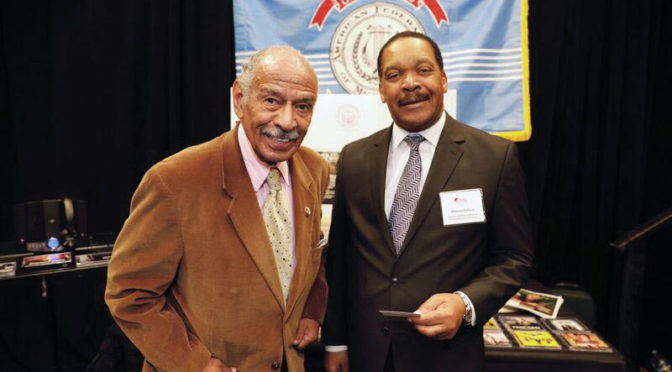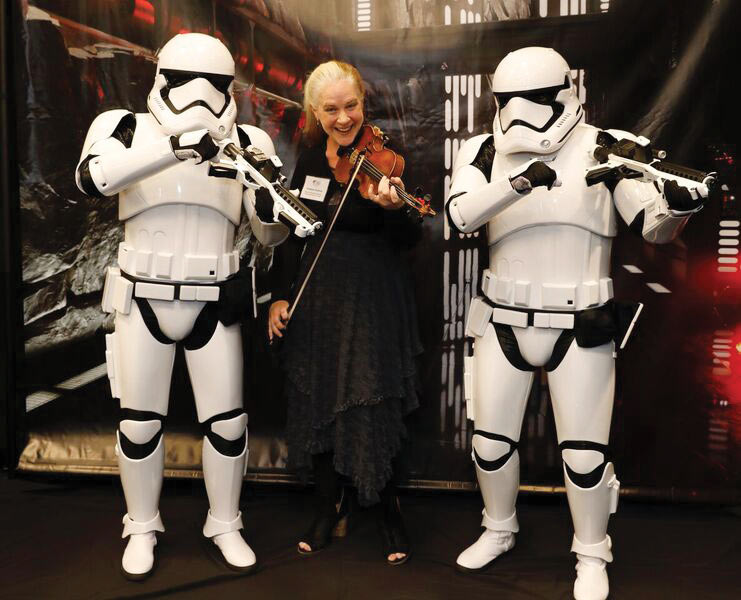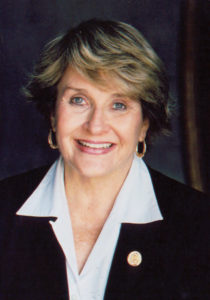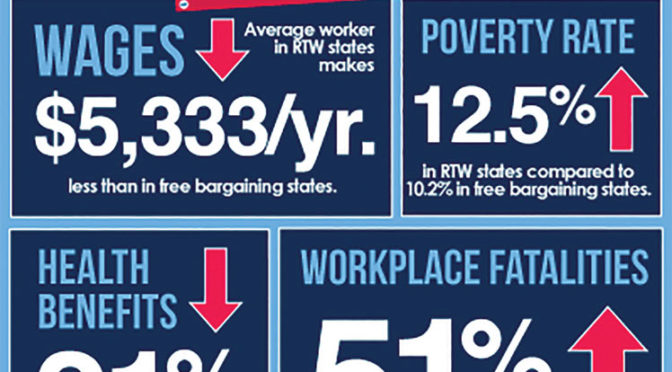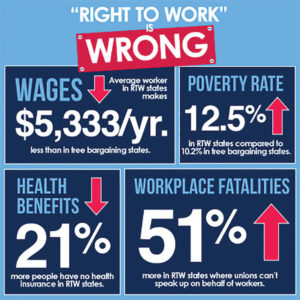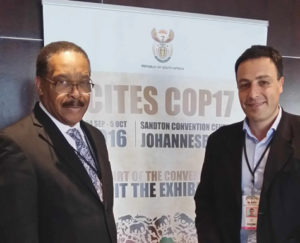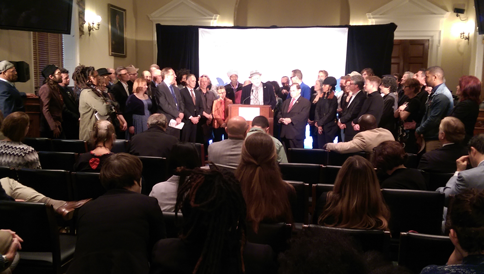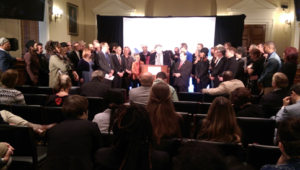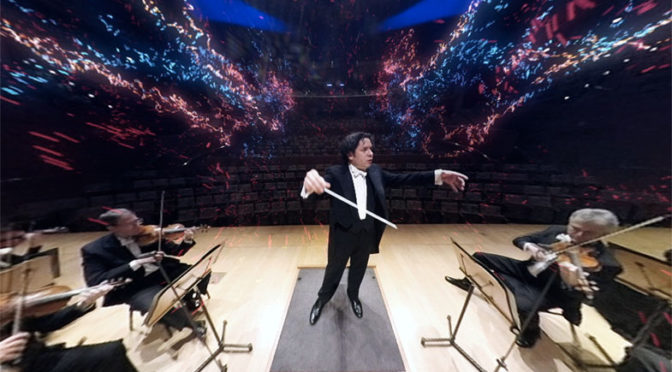Each year, the AFM joins its national partners to promote the power of music along with the effect it has on our communities. The months of March and April serve as key music advocacy months in Washington, DC. Along with the direct lobbying advanced at critical times by AFM President Ray Hair and me, hundreds of others converge on the nation’s capital each year to have their voices heard. Here is an overview of the annual national advocacy projects we engage.
Arts Advocacy Day
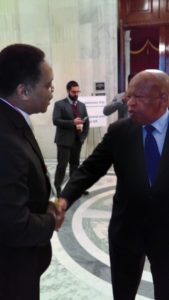
AFM Legislative-Political Director Alfonso Pollard (left) greets Representative John Lewis (D-GA) during Arts Advocacy Day.
In March, the AFM joined with more than 700 members of the labor and nonprofit communities to participate in the largest advocacy meeting of the year. Sponsored by Americans for the Arts, Arts Advocacy Day has become a national benchmark for the arts community. Each year, the week-long event is hosted by the AFM and more than 87 national arts partners across the US, from Arizona to Washington State and from Florida, north to Vermont. The event also boasts congressional support from co-chairs Representatives Louise Slaughter (D-NY) and Leonard Lance (R-NJ).
This year’s event centered on support for the National Endowment for the Arts, the National Endowment for Humanities, and the Corporation for Public Broadcasting. White House threats to shutdown the agencies resounded across the country giving national sponsors the impetus to come to Washington.
Beyond the Red Carpet
This successful event is an annual Federal government showcase that brings together scores of organizations that participate in the magical effects of television and film making. It is sponsored by the Motion Picture Association of America in cooperation with the Congressional Creative Rights Caucus co-chaired by Representatives Judy Chu (D-CA) and Doug Collins (R-GA). This year, the AFM booth was staffed by AFM Legislative-Political Director Alfonso Pollard, and AFM-RMA Representatives Gail Kruvand of Locals 47 (Los Angeles, CA) and 802 (New York City) and violinist Elizabeth Hedman of Locals 47 and 308 (Santa Barbara, CA) who performed selections from notable Hollywood film scores recorded by AFM-RMA sound-scoring musicians. The event hosted more than 500 guests, including 28 senators/representatives.
Celebrating the Dean
of the New York Delegation
Representative Louise Slaughter was recently elevated to the position of Dean of the New York Delegation. As the Representative of the 25th Congressional District of New York, she has gained the trust and respect of the entire New York Congressional Delegation, which is one of the most powerful delegations in the US Congress. As Co-Chair of the Congressional Arts Caucus and Ranking Member of the House Rules Committee, Slaughter was elected to this
position after years of dedicated service to Congress.
A string of high-ranking Democrats attended a reception in honor of her accomplishments at the International Brotherhood of Electrical Workers headquarters in Washington, DC. Each honored Slaughter, one of the AFM’s strongest champions, as one of Congress’s best legislators. For years, she chaired the bi-partisan Congressional Arts Caucus whose 160 members, time and time again, have reached out to their colleagues in support of the arts and artists across the country. Democratic Leader Nancy Pelosi spoke along with Democratic Whip Steny Hoyer who each praised Slaughter for her years of service to our nation.
The musicFIRST Coalition
The musicFIRST Coalition comprises Sound Exchange, SAG-AFTRA, the AFM, the Recording Industry Association of America, American Association of Independent Music, Christian Music Trade Association, the Recording Academy, the Latin Recording Academy, the Music Managers Forum, Rhythm and Blues Foundation, the Society of Singers, and the Vocal Group. The Music First Coalition website describes the organization as follows: “The musicFIRST Coalition was founded by a broad spectrum of organizations representing musicians, recording artists, managers, music businesses, and performance right advocates. We’ve since then expanded our unanimous music industry support to include dozens of partner organizations and groups supporting a performance right. And of course, the fantastic community of musicians and recording artists.”
The group, which is comprised of some of the brightest legal minds in the copyright and intellectual property arenas, meets weekly to develop strategies relating to such important issues as performance rights, copyright reform, and other matters that relate to the advancement of musicians rights before Congress. High on the group’s agenda is the passage of the Fair Play Fair Pay Act, which provides a royalty for creators whose music is performed on AM/FM radio.


